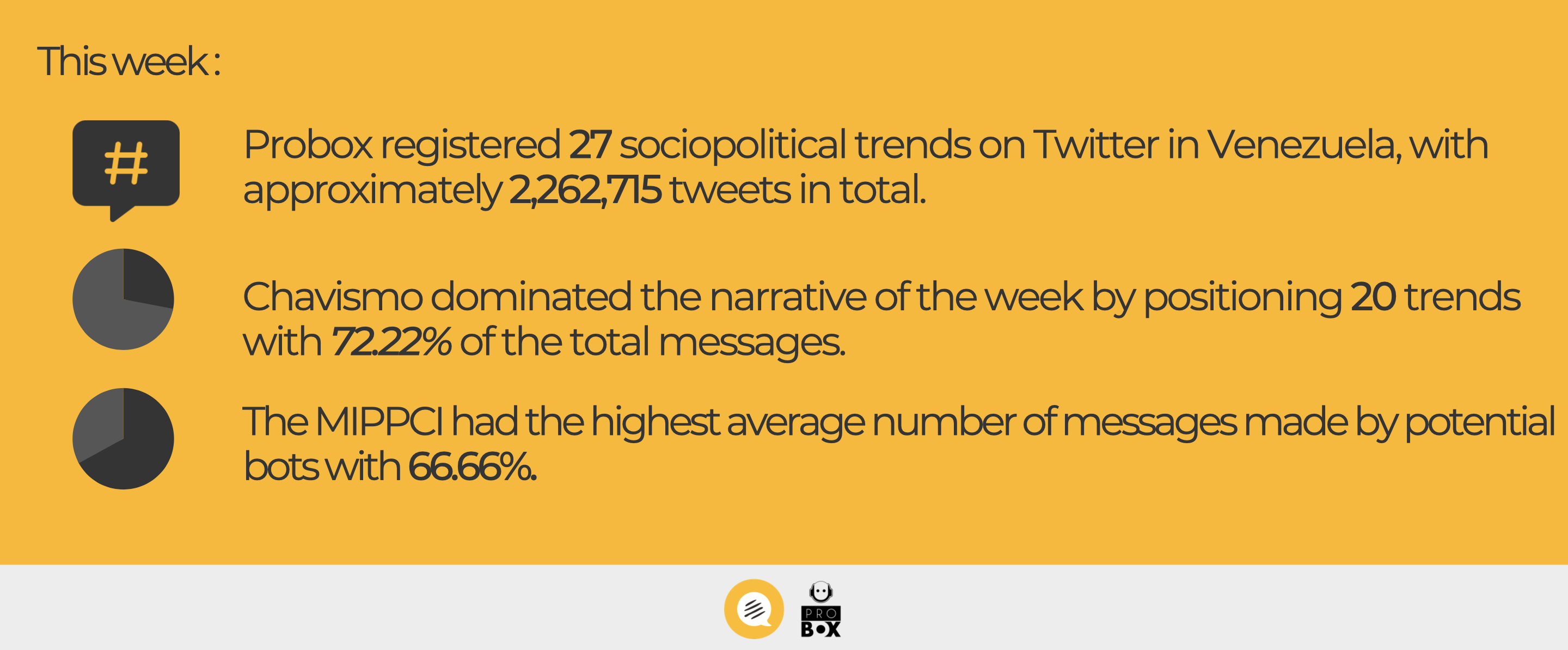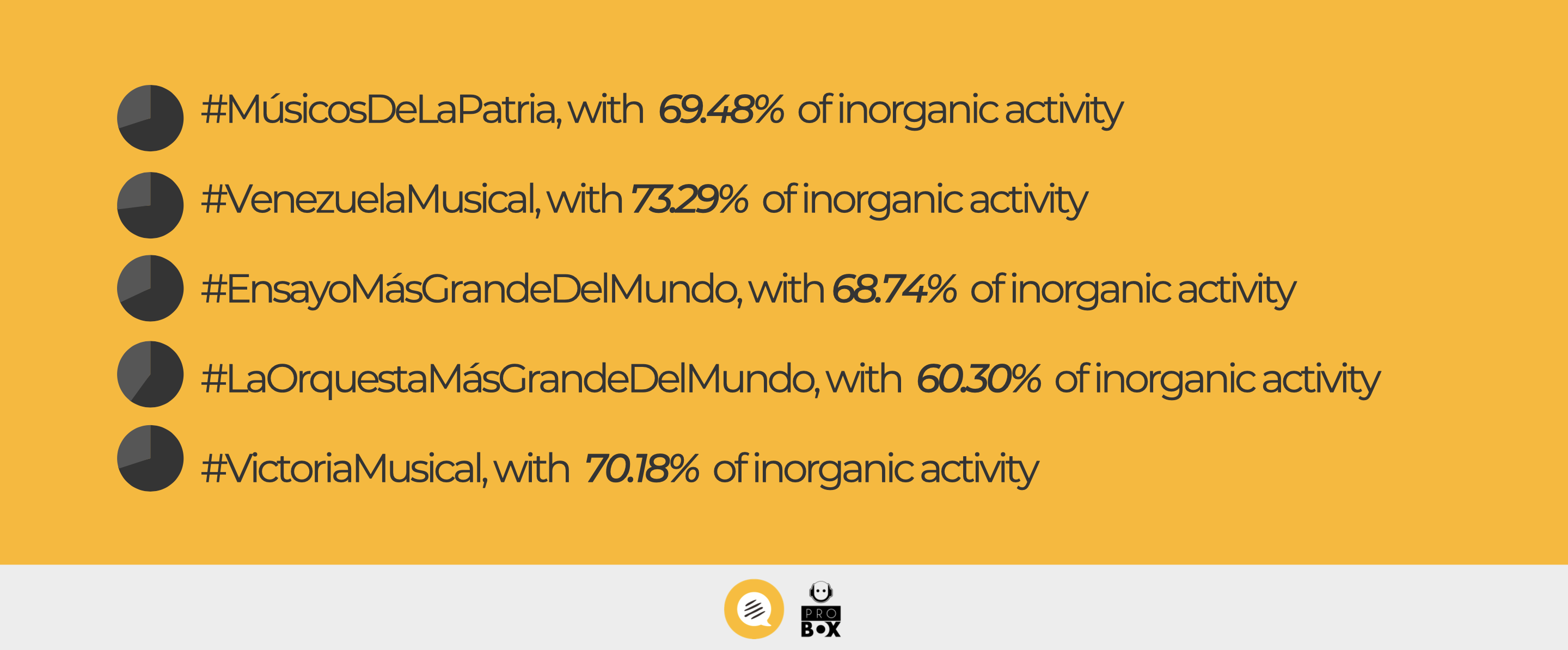The World’s Biggest Orchestra Is the Regime’s Favorite Subject
This week, Probox Politwitter highlighted how the government used El Sistema’s Guinness World Record as one of the year’s most important pieces of propaganda


 This week, many Venezuelans celebrated what they saw as one of the few good news of the year: El Sistema organized a concert starring 12,000 members of the National System of Youth and Children’s Orchestras and Choirs in the search for a new Guinness Record. The venue: the Military Academy in Fuerte Tiuna.
This week, many Venezuelans celebrated what they saw as one of the few good news of the year: El Sistema organized a concert starring 12,000 members of the National System of Youth and Children’s Orchestras and Choirs in the search for a new Guinness Record. The venue: the Military Academy in Fuerte Tiuna.
It was a moving show, but it generated both critical reactions and support from users on social media, in a controversy between those who say the concert took place in the country’s main military facility days after it was announced that the International Criminal Court is investigating crimes against humanity in Venezuela, and those who defend their right to see beauty in it and be proud of the young musicians.
Meanwhile, it was intensely promoted by institutions and agencies of Maduro’s government, as we could expect given its history with world records.
In 2015, Vox published an article about how Guinness World Records is no longer just a book company but a branded experience: “What do you do when all the good world records have been set? Hire Guinness to help you invent some new ones”
“Guinness has a new business model (…) What does Guinness consulting look like? Basically, Guinness sends its judges (dressed in their official uniform, of course) to judge “records” set by various companies (like United Biscuits). These records, in turn, receive some media attention, a service that Guinness has valued at $330,000.” Vox’s research focuses on companies, but authoritarian governments like Saudi Arabia, Russia, Turkmenistan, Dubai and others have also used Guinness Records’ services for national propaganda and to achieve legitimacy. Opting for Guinness through the “priority request” can cost between $12,000 and $500,000 (there’s no evidence that the Venezuelan government paid to be taken into consideration).
A Controversial Concert and 12,000 Hungry Musicians
While many shared the videos and images of the concert with pride, others criticized aspects of the show… and some deeper problems behind El Sistema’s methodology as an art school and a social program. There were some tweets by former teachers explaining why they left the organization, talk about the accusations of sexual and psychological abuse since 2014, and criticism of El Sistema’s closeness to chavismo. Even though El Sistema has always tried to brand itself as an apolitical social program, the fact that the event took place in the Patio de Honor of the Military Academy in Fuerte Tiuna was widely criticized on Twitter, and world-renowned musicians like pianist Gabriela Montero highlighted the participation of members of the Maduro’s government currently investigated for crimes against humanity by the International Criminal Court.
Éste era el propósito del evento de hoy. Saben quien es Delcy Rodríguez? Entienden de qué se le acusa? El cinismo es espeluznante. Véanlo. Nada más que agregar. pic.twitter.com/oBFaHnfNWu
— Gabriela Montero (@monterogabriela) November 14, 2021
The Guinness World Records website also includes a section on the issue of the pandemic. The event took place even though Venezuela is at the peak of the third wave, and has one of the lowest vaccination rates of the region.
Last, but not least, a viral video after the concert showed some of the underage musicians protesting because they had only been fed with a piece of bread and mortadella during rehearsals.
😧 #EsViral | "No queremos pan": Músicos del Sistema gritaron esta consigna para denunciar que lo único que les dieron durante los ensayos y el día del #RecordGuinness fue pan con mortadela.
📌 Video @bgalindo74 pic.twitter.com/kJR7v4O9TY
— Servicio de Información Pública (@infopublicave) November 15, 2021
Bread and Circuses: How Chavismo Took Advantage of the Concert
The Ministry of Information positioned five trending topics to promote the rehearsals and the concert making a direct reference to “The world’s biggest orchestra”:
According to the Probox team: “All the trending topics of the week were focused on this achievement, appealing to nationalistic pride, and highlighting that good things happen in Venezuela. After all, it’s a valuable piece of propaganda and they took advantage of it because it’s good news. It comes as a great propaganda campaign of the regime.”
Caracas Chronicles is 100% reader-supported.
We’ve been able to hang on for 22 years in one of the craziest media landscapes in the world. We’ve seen different media outlets in Venezuela (and abroad) closing shop, something we’re looking to avoid at all costs. Your collaboration goes a long way in helping us weather the storm.
Donate





